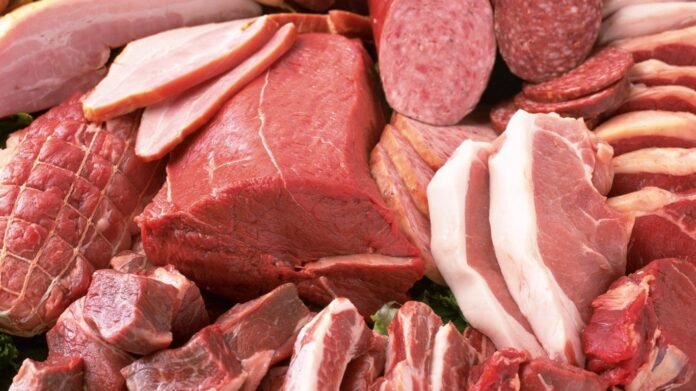
Meat has been a staple in many cultures worldwide, offering a rich source of protein and essential nutrients. However, the effects of eating meat on human health, the environment, and ethical considerations have sparked significant debate. This blog explores these aspects to provide a balanced perspective on meat consumption.
1. Nutritional Benefits of Eating Meat
Meat is an brilliant resource of high-quality protein, which is critical for muscle development, cell repair, and overall body function. It also contains important nutrients such as iron, zinc, vitamin B12, and omega-3 fatty acids:
Iron: Heme iron, found in meat, is more easily absorbed by the body compared to non-heme iron from plant sources. It helps stop anemia and supports energy levels.
Vitamin B12: Crucial for nerve function and the production of DNA and red blood cells, vitamin B12 is naturally found only in animal products.
Omega-3 Fatty Acids: Fatty fish like salmon and sardines provide these necessary fats, which support heart health, brain function, and decrease inflammation.
2. Health Risks Associated with Meat Consumption
While meat offers numerous health benefits, excessive consumption, especially of red and processed meats, has been linked to various health issues:
Cardiovascular Diseases: High injestion of saturated fats and cholesterol from red and processed meats may raise the risk of heart disease.
Cancer: The World Health Organization (WHO) classifies processed meats as carcinogenic and red meats as probably carcinogenic, linking them to colorectal cancer.
Obesity and Type 2 Diabetes: Diets high in red and processed meats are associated with a higher risk of obesity and type 2 diabetes due to their calorie density and potential to promote insulin resistance.
3. Environmental Impact of Meat Consumption
The manufacture of meat, especially beef, has a dominant environmental footprint:
Greenhouse Gas Emissions: Livestock farming is responsible for about 14.5% of global greenhouse gas emissions, contributing to climate change.
Land and Water Usage: Raising animals for food requires vast amounts of land and water. Deforestation for pasture and feed crops, such as soy, leads to habitat loss and biodiversity decline.
Pollution: Runoff from livestock farms can contaminate water supplies with nitrogen and phosphorus, leading to water pollution and dead zones in aquatic ecosystems.
4. Ethical Considerations
The ethical treatment of animals is another critical concern. Factory farming, which maximizes meat production, often involves practices that raise animal welfare issues:
Living Conditions: Many animals are kept in cramped, unsanitary conditions, causing stress, injury, and disease.
Slaughter Practices: Concerns about the humane treatment of animals during slaughter have led to calls for more ethical practices and increased transparency in the meat industry.
Moral Arguments: Some argue that with the availability of plant-based alternatives, the need to kill animals for food is unnecessary and unethical.
5. Alternatives and Moderation
With the growing awareness of the negative effects of excessive meat consumption, many are turning to alternatives and adopting more balanced diets:
Plant-Based Diets: Increasing the intake of fruits, vegetables, legumes, and grains can provide necessary nutrients while reducing environmental impact.
Flexitarian Approach: Reducing meat consumption without eliminating it entirely allows for health benefits and decreased environmental footprint.
Lab-Grown Meat: Emerging technologies are producing meat from animal cells without the need for slaughter, offering a potential solution to ethical and environmental concerns.
Meat consumption has both benefits and drawbacks. While it provides essential nutrients, excessive intake poses health risks and contributes to environmental degradation and ethical dilemmas. Adopting a balanced diet that includes plant-based foods, reducing meat intake, and supporting sustainable farming practices can help address these concerns. Ultimately, the choice to eat meat or not is a personal one, shaped by individual health needs, ethical beliefs, and environmental considerations.
Tips for a Balanced Diet
Opt for lean meats like chicken and turkey.
Include a variety of plant-based proteins like beans, lentils, and tofu.
Choose sustainably sourced meat to support ethical and environmental standards.
Limit processed meats like bacon, sausages, and deli meats to reduce health risks.
By being mindful of our dietary choices, we can make informed decisions that promote better health, protect the environment, and consider animal welfare.


